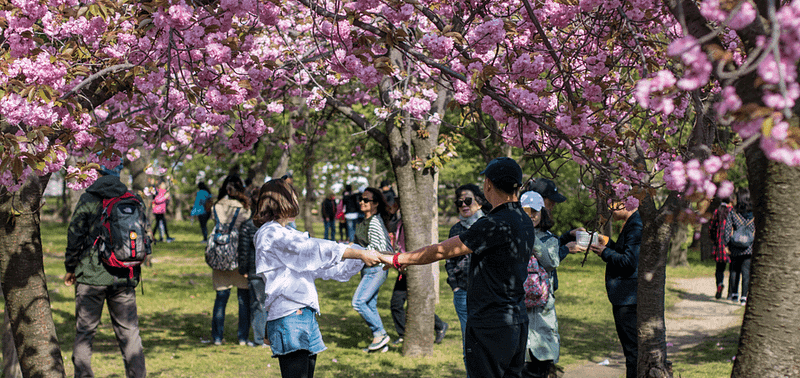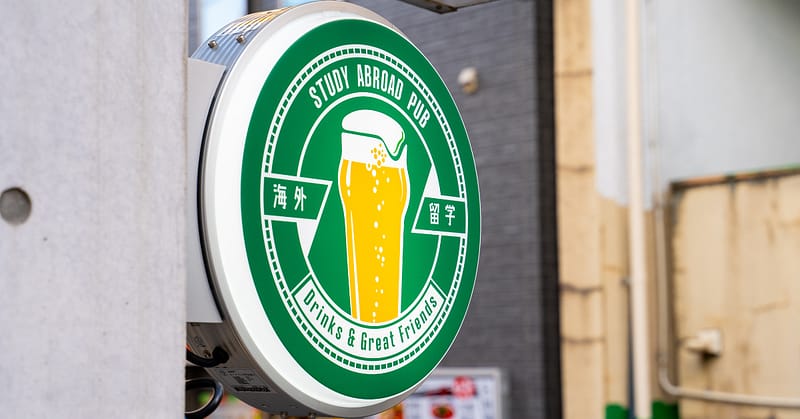For some, Japan can seem like a costly country but as with many cities around the world, you just need to know the tricks to living cheaply. We love Japan and don’t want you to be put off living and studying here just because of the cost. So we’ve put together some handy tips and tricks to help you study in Japan on a budget.
Finding a home
As with most places, one of the biggest costs of living is the housing but there are a few options that can help you save on money — particularly if you’re in the cities.
Depending on where you’re from, you may be familiar with shared housing. In Japan, it can be a little different compared to what you’re used to, but it still exists. A share house normally has shared communal areas including a kitchen, living area, and bathrooms, with private or shared rooms depending on the share house. The difference of Japanese share houses compared to other countries is that they’re often managed by an external company rather than by a private landlord. This has some benefits as often there will be cleaning staff for big share houses, and facilities are better kept.
This is a great way to save money and make new friends. The second point is also money-saving as you don’t need to go out to meet people, you just have to hang around your kitchen.
Many schools will often offer the option of dorm rooms which can be another great way to save money. These are a similar set up to the share houses but you may find you have to share a room, and often need to pay for 6 months at once instead of monthly. You will, however, save even more as you won’t need to travel as far to your school!
Getting around
Next up is transportation. This can be the next biggest cost and if you’re making the most of living and studying abroad, you’ll want to see as much of the country as possible.
Commuter pass
If you are travelling between two stations regularly either for school or work, we recommend getting a commuter pass. Available from both the ticket machines and the manned counters, a pass allows unlimited travel between two stations over a fixed period. Depending on where you are travelling to and from it may be that multiple routes are covered.
Even if you’re not commuting, depending on the network you’re using, it’s always worth checking to see if a day or week travel pass is available. The larger cities, in particular, will have these for tourists but if you have a day of exploration planned then they’re well worth it and can sometimes have offers for reduced entry to popular tourist places.
Bicycle
If you are keen to truly embrace your new life in Japan then a bike can be a favourable option. It’s worth doing a comparison of the distance between your commonly frequented places as there will almost certainly be days when it’s pouring with rain and you don’t feel up to the ride and you don’t want these to be too common.
Bike registration is important and buying a bike will have an upfront cost associated with it but the money it will save in the long run is definitely worth it. Most places in Japan are very bike-friendly as well as they are so common.
Seishun 18 pass
If you are in Japan as a student and for more than three months, you won’t be able to get the famed Japan Rail Pass. However, there are alternatives to let you explore the country on a budget. One option is the Seishun 18 pass: although it’s limited to certain holiday periods and you can’t use it on the shinkansen or limited express, you are able to get 5 days of travel out of it. This is a great way to see more of the country at a leisurely pace.
Night buses
Our favourite money saver are the highway buses and in particular the night buses. There are regularly lots of offers available and if you travel by night you’re essentially covering both your accommodation and your travel. To many, this wouldn’t be a great option but the buses available in Japan are much nicer than those you might be used to. They often come with reclining seats and blankets to make your journey more comfortable.
Eating and drinking
The third item on the list of living costs is food and drink. Just like most places, eating at home will save you a lot of money. Students often don’t have much money and this is the easiest thing to save on when you study in Japan on a budget. You may find you need to adapt your diet a bit to make the most of discounted items and more commonly eaten foods. For example, if you’re keen to make your own sandwiches, you’ll soon change your mind when you see the price of bread and the size of the loaf. You may also be familiar with the fact that fruit and vegetables are extortionately priced in Japan. Fear not, there are regularly hidden delights in the discount section of the supermarket. We recommend scoping this out a few times to find the best time of day to go and get all the cheap items.
If you live a bit further out of town, you’ll be more likely to find fruit and veg shops which are often much cheaper and will mean you’re supporting local businesses.
Eating out is actually a pretty cheap option in Japan as well with a range of cheap chain restaurants and a variety of one coin meal restaurants or all you can eat and drink deals. As you might expect it’s either chain restaurants such as Yoshinoya, Matsuya, Sukiya and Coco’s or much smaller family-run places that are off the beaten track, that will give you a reasonably priced meal to keep you going.
Living
To furnish your new home, our favourites are 100 yen stores such as Daiso, Can Do and 3 Coins. We’ve put together a useful guide to making the most of these here. To stay fashionably cheap, there are loads of second-hand clothes stores where you can find a well priced unique outfit. Harajuku is great for these but most cities have an area that will have some great shops that are frequented by students.
Making the most of Japan
There’s no point in moving to a new country unless you’re going to make the most of it and that doesn’t mean it can’t be done on a budget. If you’re a student, you’ll likely have a bit more flexibility to your week and that means you can make the most of places that have deals on weekdays, whether it’s for karaoke or a manga cafe.
Check out the places around your school or student accommodation, you’ll find plenty of places with student offers or group discounts.
If you fancy a movie, there are special days with cheap rates and if you can go in the day time it can be even cheaper depending on the cinema chain.
Museums and cultural sites also often have student days or cheaper rates for students so always check before you go.
Finally, make the most of free events. There are a ridiculous number of festivals around the year in Japan that don’t cost a thing to go to. The countryside and coastline are also well worth exploring and are free.
Walking and camping is a great cheap way to see the country. While camping is an option when you’re travelling around, it’s not very common in Japan but it is fine, just check who might own the land before you pitch your tent. There are also hundreds of free campsites around the country with surprisingly good facilities.
Check out our article about how to save money in Japan for more tips!
With so many ways to study in Japan on a budget and have an amazing adventure, we’re not sure what you’re still doing reading this! Get your application in now.












